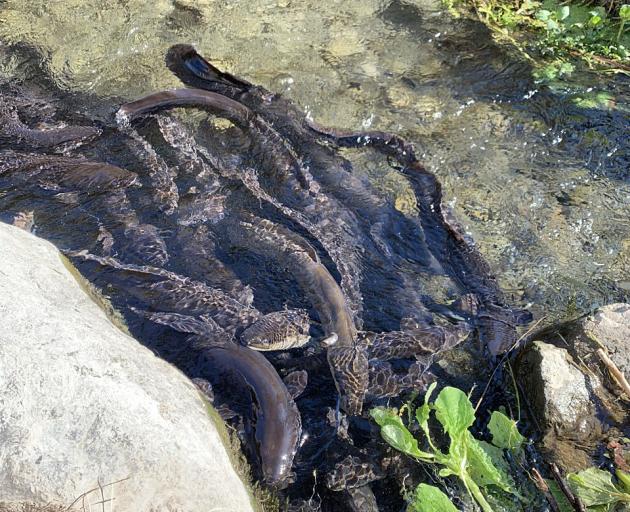
The eels have been a popular attraction for decades, where people regularly feed them.
The resident said she went to look at the eels about 9.30pm on a recent Saturday when she saw about four or five youths “mutilating and killing” them.
“They were using wrenches and knives . . . to do this in a very violent way.”

She said about three or four eels were attacked.
“To have witnessed this is disturbing, and it is very alarming that people could violently mutilate other living creatures like this.”
She reported it to Environment Canterbury.
Willowbank Wildlife Reserve community and conservation manager Shaun Horan said while it is legal to fish for eels, this incident appeared to have a different motive.
“I think situations like that, that’s not hunting, that’s not fishing for food and that is quite terrible really,” Horan said.
Horan said both long-fin and short-fin eels are in decline.
In 2012, a number of eels were killed at Willowbank after two people broke in.
Horan said the eels are one of the most popular attractions for people at the reserve.
“They are quite amazing creatures that can live up to 80 years old.”
He said the less interaction with the eels, the better.
“Visually is the best way to interact with the eels because they do often come out from the river banks during the day time.”
He said feeding wild eels is not recommended.
“Feeding can often change natural behaviour. Animals often learn to start relying on a constant source of food rather than relying on their natural instincts of hunting.
“We just have to be very careful of our fragile natural population.”













